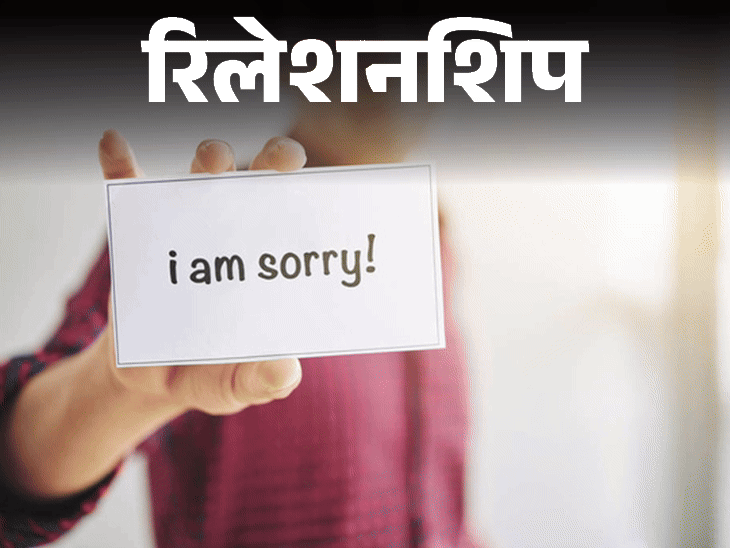Everyone makes mistakes. No one is perfect in this world. We all do this sometimes, consciously or unconsciously, when something of ours hurts someone’s heart. Making a mistake is not bad, what is bad is not accepting the mistake. Mistakes won’t be so bad if you apologize for them. But as easy as it is to say or write “I’m sorry,” it’s not as easy to truly feel it with the heart and apologize.
After all, why is it so hard to apologize? Why and how should we apologize? What effect does not accepting our mistakes have on our relationships?
Today relationship In this column, we will try to find answers to some of these questions.
Why is it difficult to apologize?
If it were that simple, everyone would accept their mistakes and apologize and there wouldn’t be so much fighting and arguing.
A social science study on this subject was published in the research journal “Sage”. According to this study, some of the main reasons people don’t apologize are:
They don’t really care about the other person. Apologizing hurts their self-image. Either way, they feel like apologizing won’t do them any good.
Why is it important to apologize?
If you realize your mistake, accept it and say it won’t happen again, then that’s an apology. Apologizing or apologizing shows that you regret what you did or said. You know it was wrong and you will try harder to prevent it from happening again in the future.
Failing to apologize when you’re wrong can damage personal and professional relationships. It can also lead to anger, resentment and hostility, which can increase over time.
True forgiveness means learning from your mistakes.
Apologizing or accepting a mistake in a relationship strengthens your relationship. However, it is not as easy as you think because your ego or your nature does not allow it.
A sincere apology expresses genuine empathy, remorse and regret, as well as a promise to learn from your mistakes. In other words, you really need to admit that you did something wrong and that you regret it.
When to apologize?
Knowing when to apologize is as important as knowing how to apologize. Understand it from the pointers given below.
If you suspect that something you did, whether intentionally or accidentally, hurt someone else, it is important to apologize and explain the situation. If what you did happened to you, you feel bad. If that’s the case, it’s obvious that others felt bad too. In such a situation, you must apologize. Apologizing not only gives you a chance to “accept” your mistakes, but it also lets you know whether what you thought was right or wrong. Even if your words unknowingly hurt or hurt someone, apologizing is. the right decision.
Although a sincere apology can help improve a relationship, people often don’t want to do it. Admitting that you were wrong is very difficult. Understand in the graphic below what is important to keep in mind when apologizing.
it’s never too late to apologize
If people leave your life before you have a chance to apologize, or if the situation becomes so bad that it doesn’t seem possible to apologize, remember that it’s never too late to apologize. Even if you think the idea of reconciling is hopeless, it’s still worth a try. It’s not good to suppress your emotions, especially if you want to make things right.
If you feel like you should give up on trying to rebuild a relationship with someone, think about what it would be like to live with regrets. If you have hurt someone you love (whether that love is romantic or not), you should never give up.
Why do we always expect forgiveness from the youngest?
We see since childhood that the youngest always apologize to their elders. Society expects the same thing. Have you ever heard parents apologize to their children, teachers to their students, or a boss to his or her employees? No.
Apologizing also becomes difficult because there is a power equation associated with it. We must overcome this mentality and change ourselves. In case of mistake, parents should also apologize to their children and elders should apologize to younger ones so that children understand the power of forgiveness.
Children should learn that it has nothing to do with age, power, position, ego and arrogance. Whenever we make a mistake, we should apologize very simply and politely.
And finally the most important. After all, why is apologizing good for our physical and mental health? What does apologizing change in us?

